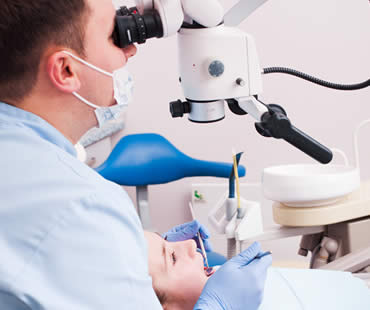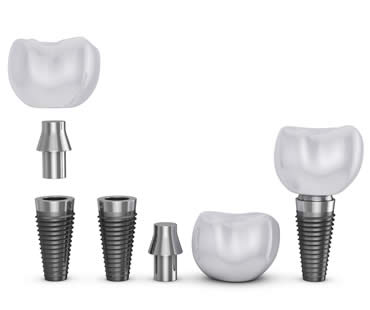
Mar 1, 2019 | Dental Topics 2, Kids Dentistry, Blog
Some people have the wrong idea that taking their children to the dentist isn’t that important, and that it’s really a healthcare choice for adulthood. Young teeth are vulnerable to bacteria that lead to cavities and gum disease, so teaching your kids how to practice good dental hygiene is a must. However, it’s just as important to get into the habit of taking your kids for regular checkups at the dentist.
Does it matter which dentist we choose?:
Sometimes the hardest part about the whole process is talking your child into seeing a dentist. Many kids are afraid of the dentist, even if it’s just the idea of an unknown experience. Then once they go to the dentist and see all the unfamiliar and sometimes noisy equipment, you can be in for an uphill battle. That’s why it’s important to choose a dentist who is experienced in treating kids and equipped for their unique needs. Select a dental office that strives to make kids comfortable and helps them through the process. You may even want to consider a pediatric dentist, who specializes only in treating kids.
What can we expect at a checkup?:
The goal of a dental visit is to clean and protect your child’s teeth, and to prevent and treat diseases or other problems. The dentist will start with an examination and X-rays if needed, in order to get a better view of your child’s oral health. The appointment will also include a teeth cleaning, which provides a much more thorough and deep cleaning than your child is able to perform at home. If there are any problems diagnosed, treatment procedures will be discussed and you can decide with the dentist how to proceed.
Schedule your appointment at our Conyers dental office

Jan 25, 2019 | Dental Topics 2, Kids Dentistry, Blog
Proper dental care is vitally important for every member of your family. Children should begin visiting a dentist as soon as their first tooth erupts, which in most cases is by their first birthday. Your family dentist is trained to take care of both adult and pediatric dental needs. An experienced family dentist can offer a wide array of dental care services to the children in your family.
A family dentist can perform routine pediatric oral exams and twice yearly professional cleanings, as well as other preventative care such as treatment with fluoride and protective sealants. In the unfortunate case your child should suffer trauma to a tooth, your family dentist is available to treat a loose, broken, or knocked-out tooth. Your dentist can diagnose and treat gum disease, tooth decay and cavities as well as identify and treat misaligned or crooked teeth and jaw or bite problems.
Your family dental practice may also offer a variety of kid-friendly amenities to make visits to the dentist less stressful. Game rooms, televisions with kid videos, and treasure box treats are just a few of the things that might be available to help your child feel at ease.
As your child ages, there will be no need to switch dentists because your family dentist can treat your child from infancy to adulthood. Having the same dentist for your entire family makes life easier when it comes time to schedule routine examinations. Often you can schedule several family members at the same time. Your family dentist will be familiar with your entire family’s dental history, which is a major benefit of taking everyone to the same dentist.
When the time comes to choose a dentist for your children, you can feel confident your family dentist will provide a lifetime of excellent dental care.
If you live in the Conyers area contact us today

Jul 20, 2018 | Dental Topics 2, Kids Dentistry, Blog
Your teeth and gums are physical assets that you want to keep healthy your whole life, and the best way to do that is to take care of them. Proper dental care needs to begin at a young age so that good habits are established for life. It is a parent’s role to teach children proper hygiene, and to ensure they get professional treatment. Here are some ways that you can help your child learn good dental habits.
Supervise brushing:
Parents should watch children brush their teeth, especially for ages seven and under, to ensure the appropriate amount of toothpaste is used and that none is swallowed. Have your child brush for about two minutes, and make sure all areas of the teeth and gums are cleaned. Provide tips and help as needed.
Establish good eating habits:
Teach your child that diet impacts oral health. Some foods worsen plaque buildup and introduce damaging acid into the mouth, leading to increased tooth decay and higher risk for cavities and gum disease. Certain foods and drinks are also known to stain teeth, or cause bad breath.
Promote water consumption:
Drinking water not only is good for your overall health, it’s also helpful to your mouth. Encourage your child to drink water after eating, especially if it’s not possible to brush teeth right away. Also, fluoridated water is proven to help fight cavities.
Visit the dentist:
Begin taking your child to the dentist around age one, so that the child gets good dental care and learns that dental visits aren’t scary. Have a positive attitude about checkups, and consider taking your child to a pediatric dentist who specializes in children’s oral health.
Be a role model:
As the saying goes, practice what you preach. Set a good example of brushing at least twice daily, flossing every day, limiting your intake of staining foods and drinks, and visiting your dentist regularly.
We look forward to seeing you in our Conyers dental office

Jul 12, 2019 | Dental Topics 2, Oral Surgery, Blog
Your family, general, or pediatric dentist or orthodontist may refer you to an oral and maxillofacial surgeon for some dental treatments that require oral surgery. An oral surgeon is a specialist who has graduated from an accredited dental school and also completed additional education and residency related to surgical procedures needed to treat various oral diseases and conditions. An oral surgeon is trained in treating the following conditions:
- Removal of diseased or impacted teeth
- Placement of dental implants
- Treatment of facial trauma involving gums, jaws, nasal cavities, cheekbones, eye sockets, and forehead
- Evaluation of pathologic conditions such as cysts and tumors of the mouth and face or acute infections of the oral cavity, salivary glands, neck, and jaws
- Treatment of facial pain including those caused by temporomandibular (TMJ) problems
- Cosmetic or reconstructive surgery to correct jaw, facial bone, and facial soft tissue problems
- Corrective jaw surgery
- Cleft lip and cleft palate repair
- Surgical treatment for sleep apnea
There are many different techniques that oral surgeons use to accomplish your treatment goals. The choice of techniques may vary between surgeons and should be discussed between you and your surgeon prior to the procedure.
Many oral surgery procedures can be completed in an outpatient setting. Often you are only in the office for a few hours and can return to your regular routine in a matter of days. A good oral surgeon will be able to perform these procedures with little chance of complications, and will be able to provide you with the information you need to understand the recovery process. Your oral surgeon will often collaborate with other specialists, such as an orthodontist or cosmetic dentist, to achieve your ultimate treatment goals.
We treat patients from Conyers and the surrounding area

Dec 17, 2021 | Dental Topics 2, Implant Dentistry, Blog
Dental implants are artificial teeth that mimic your natural tooth roots and are placed directly into your jawbone to provide optimal support for dental crowns, bridges and removable prosthodontics such as dentures. If you are considering dental implant therapy, please use the following guide to answer some of your questions.
- Am I a candidate for dental implant treatment? Dental implants can be used in healthy patients whose jawbones have completed growing and who have sufficient quality and quantity of jawbone to have a healthy implantation.
- Is dental implant treatment safe? Dentists agree that in healthy patients who are good candidates for the procedure, dental implants are low-risk.
- Will I be in a lot of pain during dental implant surgery? Dental implant surgery is typically performed as an outpatient procedure in your dentist’s office under local anesthesia.
- Does it take a long time to undergo the procedure? Treatment can generally be performed in under an hour, depending on the number of implants required.
- Is recovery painful? Healing from dental implant surgery is typically quick and easy for most healthy people. Any lingering pain can be treated with over-the-counter pain relievers.
- When will I get my new teeth? Implants must fuse to the bone in a process called ossification, a process that can take up to six months. In most cases, temporary teeth will be in place during this time period.
- How do I care for my dental implants? You will take care of your implants in the same way you would care for your natural teeth. Brush twice a day or after meals, especially before bedtime. Floss daily and continue to maintain regular dental appointments for checkups and preventative care.
- How long do dental implants last? Dental implants can last for twenty or thirty years if you care for them properly.
Schedule your appointment at our Conyers dental office

Dec 6, 2019 | Dental Topics 2, Implant Dentistry, Blog
Most people will eventually lose one or more teeth. Even with vigilant oral care, accident or injury can cause the loss of a tooth. As we age, simple daily wear can cause damage to your teeth resulting in tooth loss. More commonly, periodontal disease or tooth decay will cause you to lose one or more teeth.
While you may think one missing tooth, especially one that does not actually show, is not a problem, most dentists recommend immediately replacing a missing tooth. Missing teeth are not only unappealing aesthetically, but also cause problems with your bite and speech. More critically, missing teeth can cause a chain reaction that results in more missing teeth. Because teeth shift to fill the space created by the missing tooth, those teeth become loose and may eventually fall out.
Another problem caused by missing teeth is jaw bone loss. The pressure of tooth roots into the bone cells keeps them from dissolving. If the root is missing, the bone cells die and the bone disintegrates. The loss of jaw bone results in facial collapse, giving you a caved in and much older appearance. Bone loss also causes remaining teeth to become loose and fall out.
One of the best options for replacing lost teeth are dental implants. The placement of dental implants and tooth restorations can prevent the bone loss that results from missing teeth. Not only do dental implants restore the look of your natural teeth, they also provide the function and feel of your original teeth. Dental implants allow you to return to eating and speaking normally, and return your smile to its natural glory. To find out if dental implants are a viable solution to your missing teeth, contact your dentist for an examination and evaluation. With dental implants you can restore the look, feel and function of your natural smile.
Schedule your appointment at our Conyers dental office






